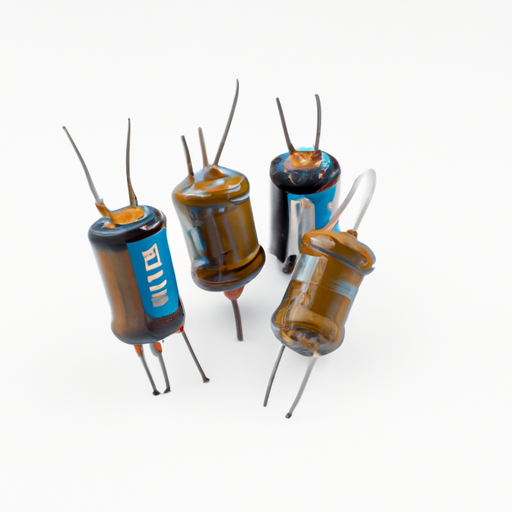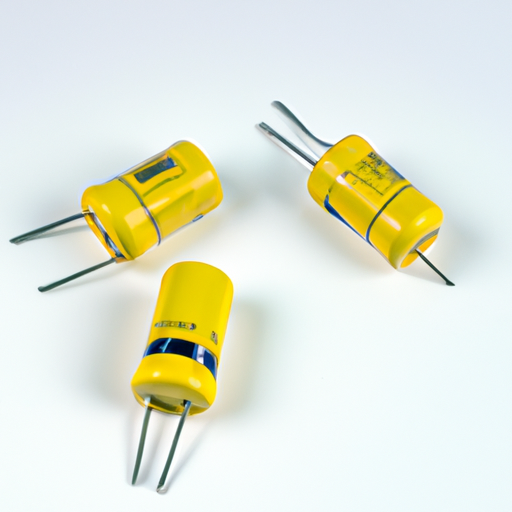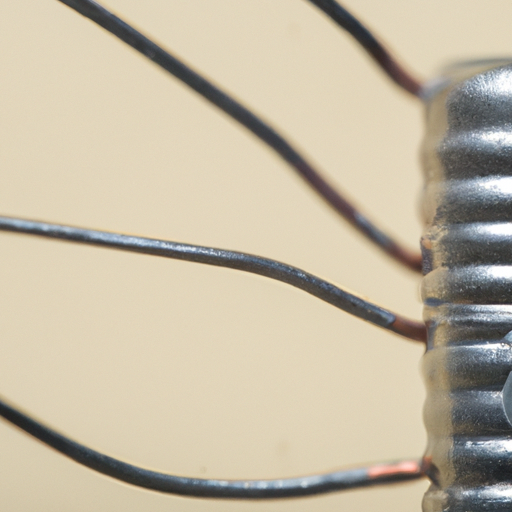What are the main applications of capacitors?
What are the Main Applications of Capacitors?
I. Introduction
Capacitors are fundamental components in the world of electronics, playing a crucial role in various applications across multiple industries. Defined as passive electrical devices that store and release electrical energy, capacitors have evolved significantly since their inception in the 18th century. The first capacitor, known as a Leyden jar, was developed in 1745, marking the beginning of a technology that would become indispensable in modern circuits. Today, capacitors are integral to everything from consumer electronics to renewable energy systems, underscoring their importance in contemporary technology.
II. Basic Principles of Capacitors
A. Structure and Components
Capacitors consist of two conductive plates separated by an insulating material known as a dielectric. The dielectric can be made from various materials, including ceramic, plastic, or electrolytic substances, each affecting the capacitor's performance characteristics. When a voltage is applied across the plates, an electric field forms, allowing the capacitor to store energy.
B. How Capacitors Store and Release Energy
The ability of capacitors to store energy is defined by their capacitance, measured in farads (F). When charged, capacitors can release this stored energy quickly, making them ideal for applications requiring rapid energy discharge. This unique property distinguishes capacitors from other energy storage devices, such as batteries, which release energy more slowly.
C. Types of Capacitors
There are several types of capacitors, each suited for specific applications:
1. **Electrolytic Capacitors**: Known for their high capacitance values, these capacitors are often used in power supply circuits.
2. **Ceramic Capacitors**: These are widely used in high-frequency applications due to their stability and low losses.
3. **Film Capacitors**: Known for their reliability and low self-inductance, film capacitors are used in audio and power applications.
4. **Tantalum Capacitors**: These capacitors offer high capacitance in a small package, making them suitable for compact electronic devices.
5. **Supercapacitors**: Capable of storing large amounts of energy, supercapacitors are used in applications requiring rapid charge and discharge cycles.
III. Capacitors in Electronic Circuits
A. Energy Storage
Capacitors are essential for energy storage in electronic circuits. They smooth out voltage fluctuations in power supplies, ensuring a stable output. This is particularly important in devices that require a consistent power supply, such as computers and audio equipment.
B. Timing Applications
Capacitors are also used in timing applications, where they work in conjunction with resistors to create RC (resistor-capacitor) circuits. These circuits are fundamental in generating time delays and oscillations, which are crucial in various electronic devices, including clocks and timers.
C. Signal Coupling and Decoupling
In signal processing, capacitors are used for coupling and decoupling signals. AC coupling allows alternating current signals to pass while blocking direct current, which is essential in audio and communication systems. Additionally, capacitors filter out noise in power supplies, ensuring clean and stable operation.
IV. Capacitors in Power Electronics
A. Power Factor Correction
In industrial settings, capacitors are employed for power factor correction, improving the efficiency of power systems. By reducing reactive power, capacitors help maintain voltage levels and reduce energy losses in electrical systems.
B. Voltage Regulation
Capacitors play a vital role in voltage regulation, ensuring that electrical devices receive a consistent voltage level. This is particularly important in applications where voltage fluctuations can lead to equipment damage or malfunction.
C. Inverters and Converters
In power electronics, capacitors are used in inverters and converters to manage energy flow. They help stabilize voltage and improve the efficiency of energy conversion processes, which is essential in renewable energy systems.
D. Renewable Energy Systems
Capacitors are increasingly used in renewable energy systems, such as solar and wind energy. In solar inverters, capacitors help manage the energy conversion process, ensuring that the energy generated is efficiently fed into the grid. Similarly, in wind energy systems, capacitors stabilize voltage and improve overall system performance.
V. Capacitors in Consumer Electronics
A. Audio Equipment
In audio equipment, capacitors are used in speaker crossovers to direct specific frequency ranges to the appropriate speakers. They are also found in amplifiers, where they help filter and stabilize audio signals, ensuring high-quality sound reproduction.
B. Televisions and Displays
Capacitors are integral to the operation of televisions and display technologies. They help manage power supply fluctuations and are used in various circuit designs to enhance image quality and performance.
C. Mobile Devices
In mobile devices such as smartphones and tablets, capacitors are used for energy storage, signal processing, and power management. Their compact size and efficiency make them ideal for the increasingly miniaturized electronics found in these devices.
VI. Capacitors in Industrial Applications
A. Motor Start and Run Capacitors
In industrial applications, capacitors are used to start and run electric motors. Start capacitors provide the necessary boost to initiate motor operation, while run capacitors improve efficiency during continuous operation.
B. Power Supply Systems
Capacitors are essential in power supply systems, where they help stabilize voltage and improve overall system reliability. They are used in various applications, from industrial machinery to commercial power systems.
C. Automation and Control Systems
In automation and control systems, capacitors are used to filter signals and stabilize power supplies. Their ability to store and release energy quickly makes them ideal for applications requiring rapid response times.
D. HVAC Systems
Capacitors are also used in heating, ventilation, and air conditioning (HVAC) systems. They help start and run motors, ensuring efficient operation and energy savings in climate control systems.
VII. Capacitors in Automotive Applications
A. Energy Storage in Electric Vehicles
In the automotive industry, capacitors are increasingly used in electric vehicles (EVs) for energy storage. They provide quick bursts of power for acceleration and regenerative braking, enhancing overall vehicle performance.
B. Power Management Systems
Capacitors play a crucial role in power management systems within vehicles, helping to regulate voltage and improve energy efficiency. This is particularly important in hybrid and electric vehicles, where efficient energy use is paramount.
C. Safety Systems
Capacitors are also used in automotive safety systems, such as airbags. They store energy that is rapidly released to deploy airbags in the event of a collision, ensuring passenger safety.
VIII. Emerging Applications of Capacitors
A. Electric Vehicles and Hybrid Systems
As the demand for electric and hybrid vehicles grows, so does the need for advanced capacitor technologies. Supercapacitors, in particular, are being explored for their potential to enhance energy storage and efficiency in these vehicles.
B. Smart Grid Technology
Capacitors are integral to the development of smart grid technology, which aims to improve the efficiency and reliability of electrical grids. They help manage energy flow and stabilize voltage levels, enabling better integration of renewable energy sources.
C. Wearable Technology
In the realm of wearable technology, capacitors are used for energy storage and signal processing. Their compact size and efficiency make them ideal for devices such as fitness trackers and smartwatches.
D. Internet of Things (IoT)
Capacitors are also essential in IoT devices, where they help manage power consumption and ensure reliable operation. As IoT technology continues to expand, the role of capacitors in these systems will become increasingly important.
IX. Conclusion
Capacitors are versatile components with a wide range of applications across various industries. From energy storage and signal processing to power management and safety systems, their importance cannot be overstated. As technology continues to evolve, so too will the applications of capacitors, paving the way for innovations in electric vehicles, renewable energy, and smart technologies. The ongoing development of capacitor technology will undoubtedly play a crucial role in shaping the future of electronics and electrical engineering.
X. References
- Academic journals on electrical engineering and electronics
- Industry publications discussing advancements in capacitor technology
- Books on electronics and electrical engineering principles
In summary, capacitors are not just passive components; they are active players in the advancement of technology, driving innovation and efficiency across multiple sectors. Their ability to store and release energy quickly makes them indispensable in today's fast-paced electronic landscape.





